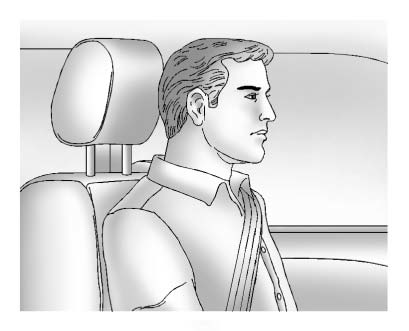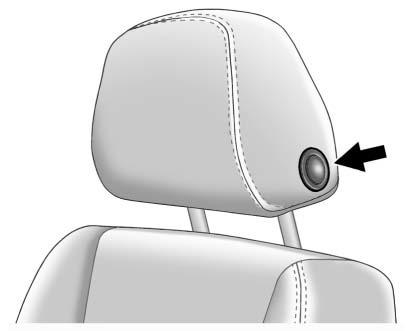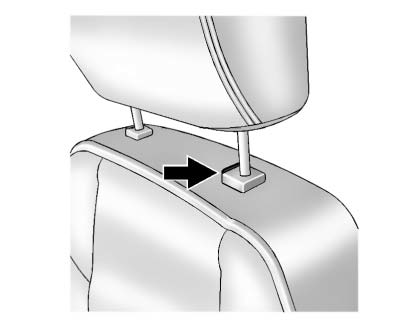Head Restraints
The vehicle's front seats have adjustable head restraints in the outboard seating positions.
The vehicle's rear seats have adjustable head restraints in the outboard seating positions.
![]() WARNING
WARNING
With head restraints that are not installed and adjusted properly, there is a greater chance that occupants will suffer a neck/ spinal injury in a crash. Do not drive until the head restraints for all occupants are installed and adjusted properly.

Adjust the head restraint so that the top of the restraint is at the same height as the top of the occupant's head. This position reduces the chance of a neck injury in a crash.
Front Seat

To raise or lower the head restraint, press the release button located on the side of the head restraint and pull up or push the head restraint down and release the button.
Pull and push on the head restraint after the button is released to make sure that it is locked in place.
The front head restraints are not designed to be removed.
Rear Seat

Pull the head restraint up to raise it.
To lower the head restraint, press the release button, located on the head restraint post on the top of the seatback, while you push the head restraint down.
Push down on the head restraint after the button is released to make sure that it is locked in place.
If you are installing a child restraint in the rear seat, see “Securing a Child Restraint Designed for the LATCH System” under Lower Anchors and Tethers for Children (LATCH System) .
See also:
Power Reclining Seatbacks
Power Reclining Seatbacks
To raise or recline the seatback, tilt
the top of the vertical control
forward or rearward. See Reclining
Seatbacks. ...
Tire Inspection
We recommend that the tires,
including the spare tire, if the
vehicle has one, be inspected
for signs of wear or damage at
least once a month.
Replace the tire if:
• The indicators at thre ...
The Inside
Buick sells only three models now, and the Lucerne falls in the middle in
size, price and interior quality. Of the three large crossover models GM has
sold over the past couple years, the Buick En ...


